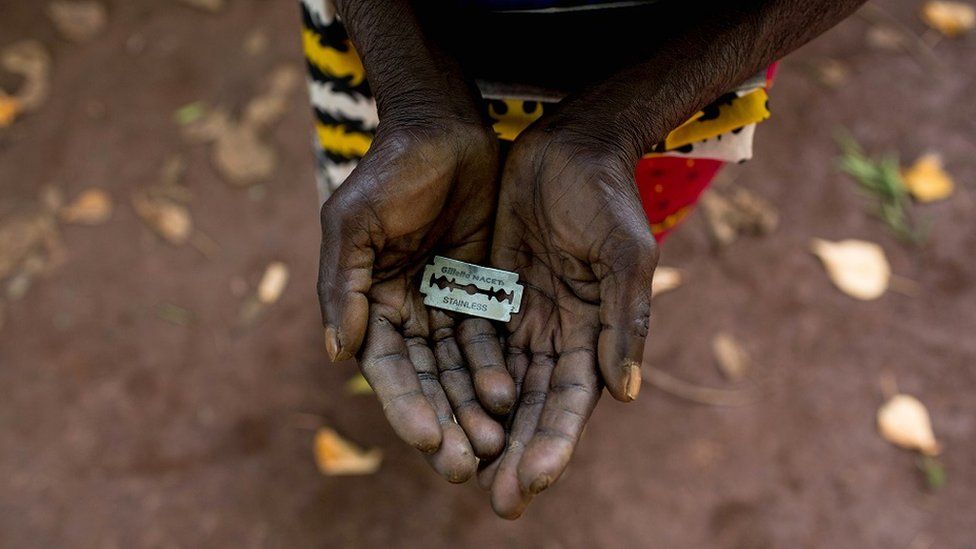Onelife Initiative partners hospital to offer free care for survivors of Female Genital Mutilation
As part of activities to commemorate this year’s International Day of Zero Tolerance for Female Genital Mutilation, Onelife Initiative has partnered with Highway Laparoscopy Hospital and Fertility Center to offer free consultation and referral services to survivors of Female Genital Mutilation in Nigeria. Female Genital Mutilation remains a major reproductive health issue for women and […]

As part of activities to commemorate this year’s International Day of Zero Tolerance for Female Genital Mutilation, Onelife Initiative has partnered with Highway Laparoscopy Hospital and Fertility Center to offer free consultation and referral services to survivors of Female Genital Mutilation in Nigeria.
Female Genital Mutilation remains a major reproductive health issue for women and girls in Nigeria, especially as Nigeria has one of the highest number of girls and women ages 15 – 49 that have been cut globally.
With a national prevalence of 20%, more needs to be done to take the number down and ensure that this harmful practice becomes history by 2030. Female Genital Mutilation is the total or partial removal of all or part of the external female genitalia for cultural or non-medical reasons.
Despite laws prohibiting FGM in Nigeria and in the various states, it is still a national concern.
As part of its activity to commemorate the annual International Day of Zero Tolerance for Female Genital Mutilation on February 6th, Onelife Initiative for Human Development, a non-profit organisation that has implemented various community and media initiatives to contribute to ending female genital mutilation in Nigeria since 2014, is setting up an opportunity for women and girls that have been cut to access health care service.
This year’s commemoration is themed — Invest, Don’t Rest: Accelerating Investments to End Female Genital Mutilation.
“One repeated question we have always had when we go into communities in urban and rural centres or when on radio is — ‘what do I do now that I know I have been cut?’ We have often simply directed our audience to visit a hospital for medical check-up to determine the extent of the cut and to take advantage of professional medical consultation. Our listeners never do so for varied understandable reasons, and that was why we came up with this idea, ” explained ‘Sola Fagorusi, the Executive Director of Onelife Initiative.
Onelife Initiative is offering this free service to address this gap by facilitating medical consultation for 50 girls and women. It is part of our efforts to support women and girls and also provide a safe space where they can talk about their challenges and struggles having been cut. Their stories will also be a major tool in addressing those who think FGM is a culture that should be preserved. Interested persons can call the dedicated line on 09027770177 for a pre-consultation or to book an appointment.
Fagorusi explained that jingles have been placed on radio and adverts on social media to allow Nigerian girls and women who are survivors of this harmful traditional practice come forward to access and hopefully improve the quality of their reproductive and sexual health.
According to Dr. Akintunde Fehintola, a Reproductive Health Specialist and advocate against Gender Based Violence who heads the management at Highway Laparoscopy Hospital and Fertility Center, “… we are excited about this partnership with Onelife Initiative. It is long overdue and it is a good thing it is starting from Osun state; a major site of FGM. Through this initiative, we will learn more about the challenges of these women and girls who our society and culture have failed.”
This initiative is a first in Nigeria where health care facilities are notoriously burdened. Onelife Initiative has in the recent past through its partners and donors implemented the poster arts competition for girls and women in 5 states with the highest prevalence of Female Genital Mutilation in Nigeria. It has also trained radio journalists from 19 states in Nigeria on how to produce content to support the drive to end FGM. It has also produced cartoon illustrations with information on various myths about FGM and the truths, amongst its other national drive to end the practice.
